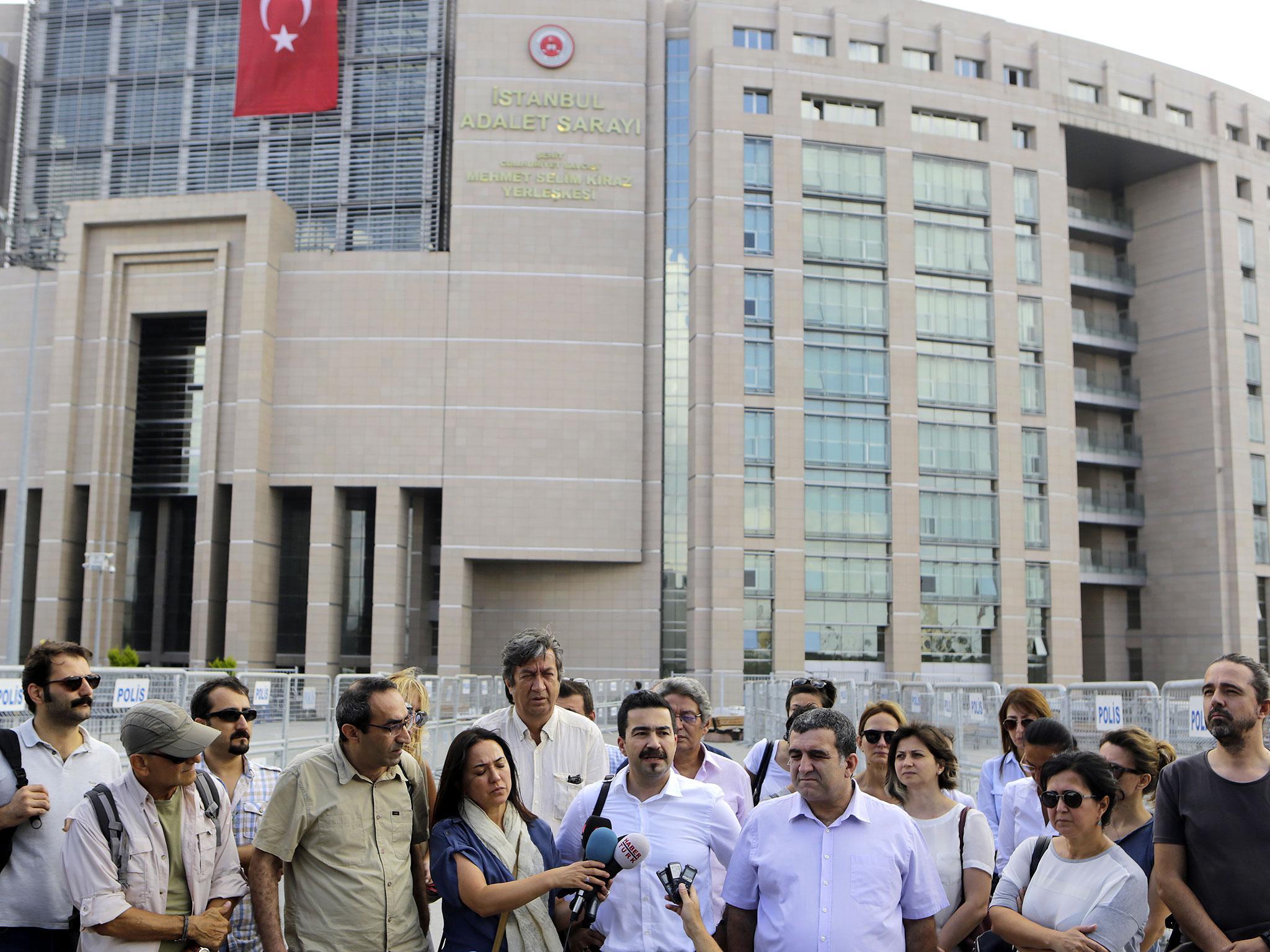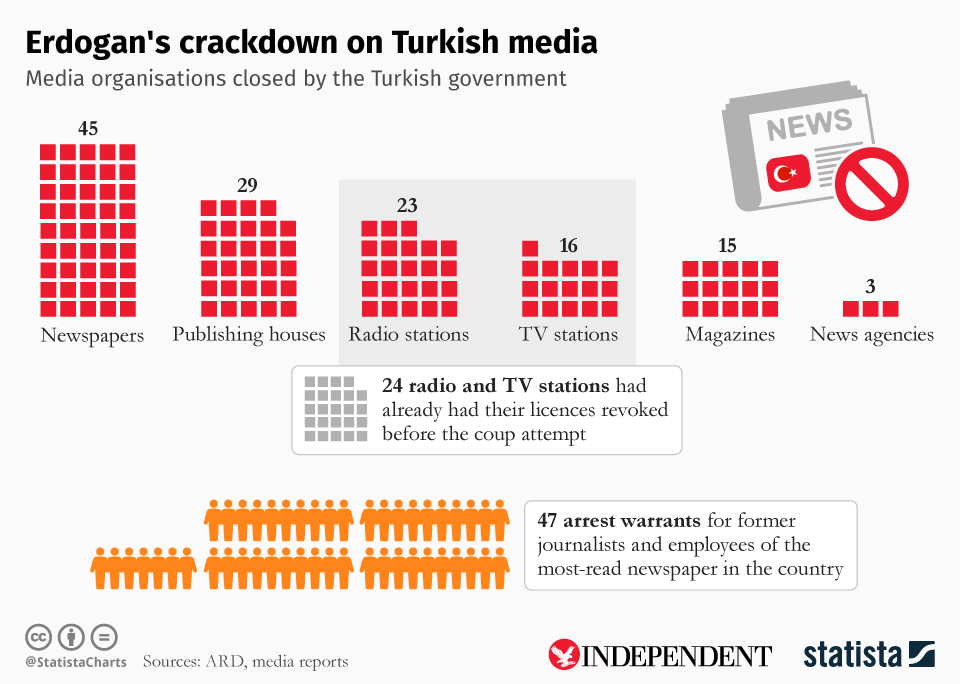President Erdogan's crackdown on the Turkish media since the coup in one chart
More than 130 media organisations have been shut down since the coup attempt on 15 July

Your support helps us to tell the story
From reproductive rights to climate change to Big Tech, The Independent is on the ground when the story is developing. Whether it's investigating the financials of Elon Musk's pro-Trump PAC or producing our latest documentary, 'The A Word', which shines a light on the American women fighting for reproductive rights, we know how important it is to parse out the facts from the messaging.
At such a critical moment in US history, we need reporters on the ground. Your donation allows us to keep sending journalists to speak to both sides of the story.
The Independent is trusted by Americans across the entire political spectrum. And unlike many other quality news outlets, we choose not to lock Americans out of our reporting and analysis with paywalls. We believe quality journalism should be available to everyone, paid for by those who can afford it.
Your support makes all the difference.More than 130 media organisations have been shut down in Turkey following the attempted coup as President Recep Tayyip Erdogan tightens his grip on power.
Some 45 newspapers, 29 publishing houses, 23 radio stations, 16 TV stations, 15 magazines and three news agencies have all fallen foul of the Turkish government.
The graph made for The Independent by Statista also highlights the 47 arrest warrants issued for journalists who worked for the Zaman newspaper.

It was the biggest opposition newspaper in Turkey before it was shut down by police in March. It is not included in the figures.
The Erdogan administration claimed the newspaper supported the exiled cleric Fethullah Gulen, who has been blamed for the attempted coup.
More than 15,000 people, including around 10,000 soldiers, have so far been arrested during the crackdown that followed the coup attempt on 15 July as Mr Erdogan moved to "cleanse" the army and state institutions of "Gulenist" influences.
Mr Gulen has lived in self-imposed exile in the US since falling out with Mr Erdogan but denies having had anything to do with the coup attempt.
At least 246 people were killed and more than 2,000 people were injured in the coup attempt as a group of soldiers blockaded the airport in Istanbul and both bridges over the Bosphorous, as well as seizing control of the state broadcaster and sending tanks into the streets.
The coup unravelled after Mr Erdogan’s supporters responded to his call to protest in Istanbul and the capital, Ankara.
In the week following the coup, pro-government supporters have staged rallies every night after being told to "stay on the streets" by Mr Erdogan.
Western government and human rights groups have condemned the attempted coup but also raised concerns about Mr Erdogan’s crackdown.
When he threatened to reinstate the death penalty, the President of the EU Commission, Jean-Claude Juncker said it would be end of the country’s EU membership bid if he did so.
Join our commenting forum
Join thought-provoking conversations, follow other Independent readers and see their replies
Comments